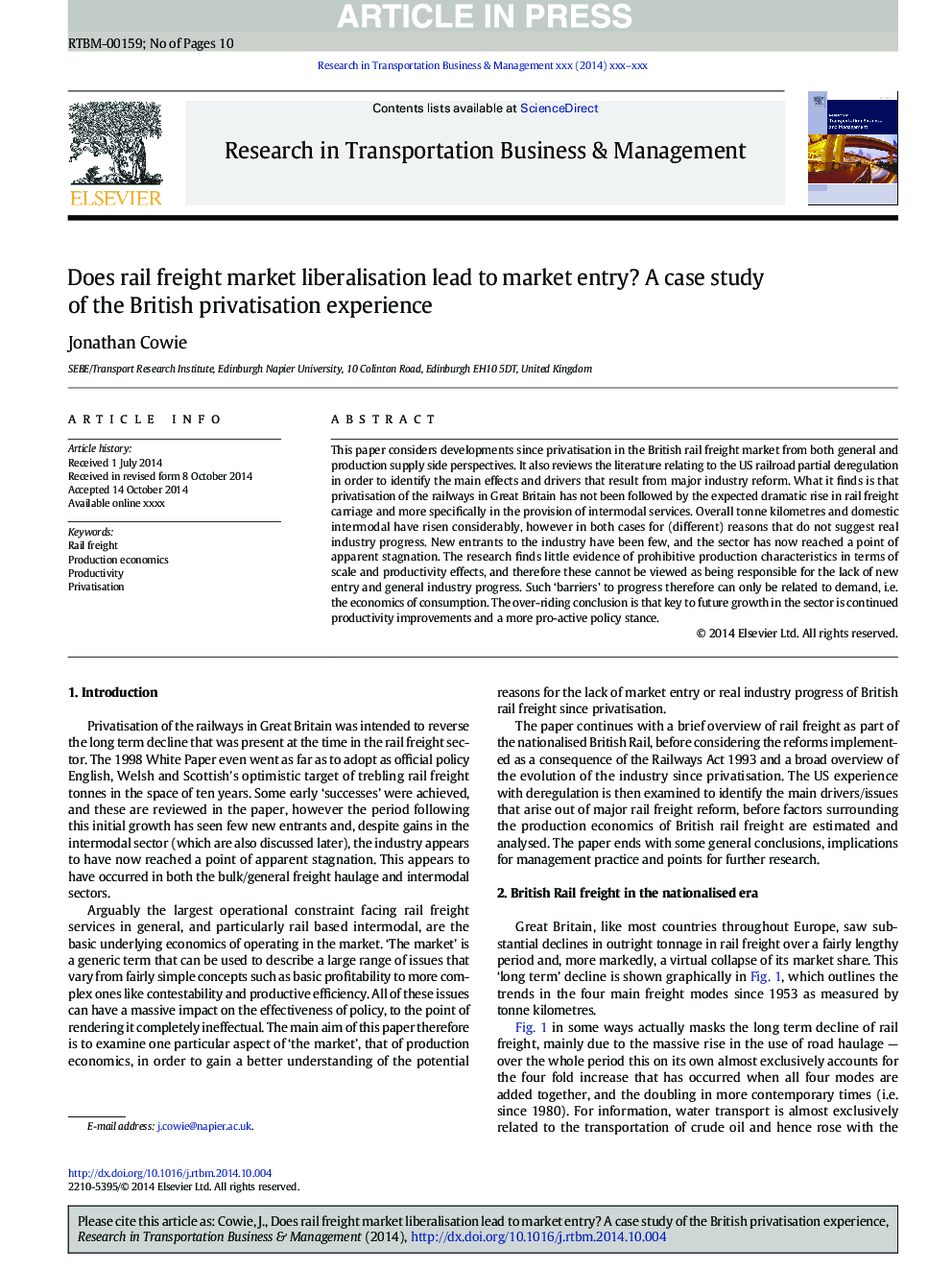| Article ID | Journal | Published Year | Pages | File Type |
|---|---|---|---|---|
| 7410381 | Research in Transportation Business & Management | 2015 | 10 Pages |
Abstract
This paper considers developments since privatisation in the British rail freight market from both general and production supply side perspectives. It also reviews the literature relating to the US railroad partial deregulation in order to identify the main effects and drivers that result from major industry reform. What it finds is that privatisation of the railways in Great Britain has not been followed by the expected dramatic rise in rail freight carriage and more specifically in the provision of intermodal services. Overall tonne kilometres and domestic intermodal have risen considerably, however in both cases for (different) reasons that do not suggest real industry progress. New entrants to the industry have been few, and the sector has now reached a point of apparent stagnation. The research finds little evidence of prohibitive production characteristics in terms of scale and productivity effects, and therefore these cannot be viewed as being responsible for the lack of new entry and general industry progress. Such 'barriers' to progress therefore can only be related to demand, i.e. the economics of consumption. The over-riding conclusion is that key to future growth in the sector is continued productivity improvements and a more pro-active policy stance.
Related Topics
Social Sciences and Humanities
Business, Management and Accounting
Business and International Management
Authors
Jonathan Cowie,
